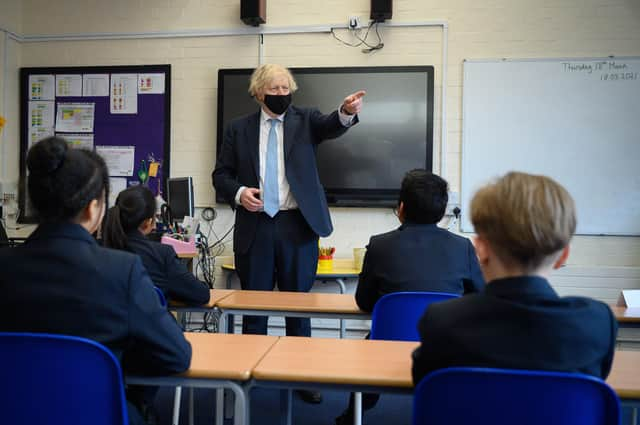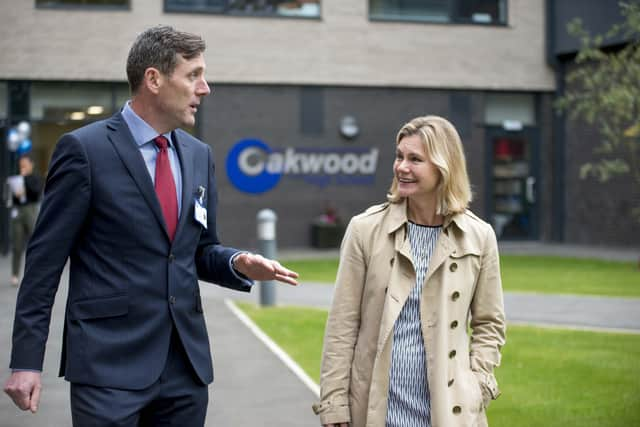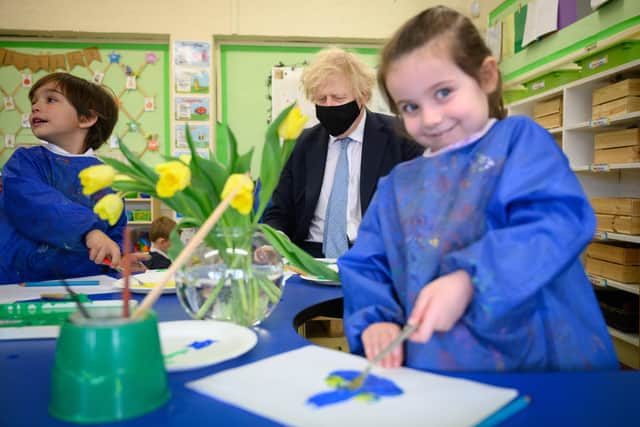How schools can help Britain build back better – Justine Greening


No doubt millions of parents have breathed a sigh of relief at an end to home schooling. But what comes next?
There’s a lot of talk about how Britain needs to ‘‘build back better’’ but what should that mean for our education system?
Advertisement
Hide AdAdvertisement
Hide AdMuch of the education focus is understandably on helping children and young people catch up their lost learning, but it’s time to properly recognise that if education is going to be the great leveller then it needs to go much further than that.


An education system to drive levelling up must have a clear purpose of giving young people the knowledge and skills, alongside the right advice and experiences they need to take advantage of and create the opportunities they’ll want in adult life.
Plus, it should give them a love of learning that can last a lifetime, so that as new opportunities need new skills, they are ready to reskill and upskill throughout their career.
Being able to reach your potential in life is not driven purely by how much knowledge you have. It’s also enabled by having a sense of the goals you’re aiming for and the opportunities that interest you.
Advertisement
Hide AdAdvertisement
Hide AdIt’s enabled by the personal development that comes from having different experiences that build your wider strengths and skills as a person – the ability to work in a team, learning how to overcome problems, or how to be confident in getting a point across.


Employers already know these wider strengths matter and they recruit to find people with them. And their shift to look well beyond the narrow lens of academic grades will be turbocharged further and faster now this year’s GCSEs and A-Level exams are cancelled.
But if these wider strengths matter for success in later life, a levelling up education plan should make sure it develops young people to have them.
Yet at the moment, our schools are tasked by policymakers to achieve results on a much narrower basis of academic attainment in exams – in fact, little else matters in practice.
Advertisement
Hide AdAdvertisement
Hide AdNone of this is to say that academic attainment isn’t important – it is, but it takes more for an education system with an objective to level up Britain.
Academic attainment has to be part of a bigger education plan with levelling up goals and a purpose that embeds ensuring young people leave our school system fully ‘‘career ready’’.
Here’s how. Through existing work, for example Opportunity Areas and the National Tutoring scheme, we can already see a basis of how we might close the attainment gap more seriously.
It needs ambition and proper resourcing but investing in a child’s future is a smart approach, as parents who afford to pay extra for private education recognise. They do it because that investment pays off, and it could for a wider country too.
Advertisement
Hide AdAdvertisement
Hide AdFor the majority of young people who don’t have family connections and access to informed advice as their more privileged counterparts do, having mentoring and support offered at scale for young people is surely within our ability to deliver.
And it is also surely not beyond this country to be able to ensure that all our young people can have access to opportunities for high quality work experience and other crucial experiences that build confidence.
Or that they have access to a digital device to learn on. Or that they know how to set up and run a business to be able to create their own opportunity, igniting a 21st century entrepreneurial spirit matching the one that made our country great in the first place.
There are many companies out there that already see themselves as part of the solution. Public service broadcaster, Channel 4 is newly arrived in its Leeds office but already providing apprentice and training opportunities for young people in a media sector that has traditionally been far less diverse than it should be.
Advertisement
Hide AdAdvertisement
Hide AdEncouragingly, when I recently spoke to its inspirational chief executive, Alex Mahon, it was clear that they feel they are just getting started and there is more to come.
I believe that our teachers very strongly understand this wider purpose of education and are committed to delivering it, but the reality is that they too are captured and constrained in an education system that judges them and their students almost entirely on academic attainment.
After the Second World War, we created an NHS and welfare system providing a safety net for the worst of times – they have proved pivotal in recent months.
But now it’s time to redefine the purpose of our education system so it can equally act as a springboard to guarantee the best of times for everyone, whoever they are, wherever they are.
Advertisement
Hide AdAdvertisement
Hide AdThis is possible. Equality of opportunity is not a utopia, as someone suggested to me the other day, it is a practical, achievable necessity and we can start delivering it through our education system.
Only our level of ambition can hold us back.
Justine Greening is a former Education Secretary. She was born in Rotherham and grew up in the town.
Support The Yorkshire Post and become a subscriber today. Your subscription will help us to continue to bring quality news to the people of Yorkshire. In return, you’ll see fewer ads on site, get free access to our app and receive exclusive members-only offers. Click here to subscribe.
Comment Guidelines
National World encourages reader discussion on our stories. User feedback, insights and back-and-forth exchanges add a rich layer of context to reporting. Please review our Community Guidelines before commenting.